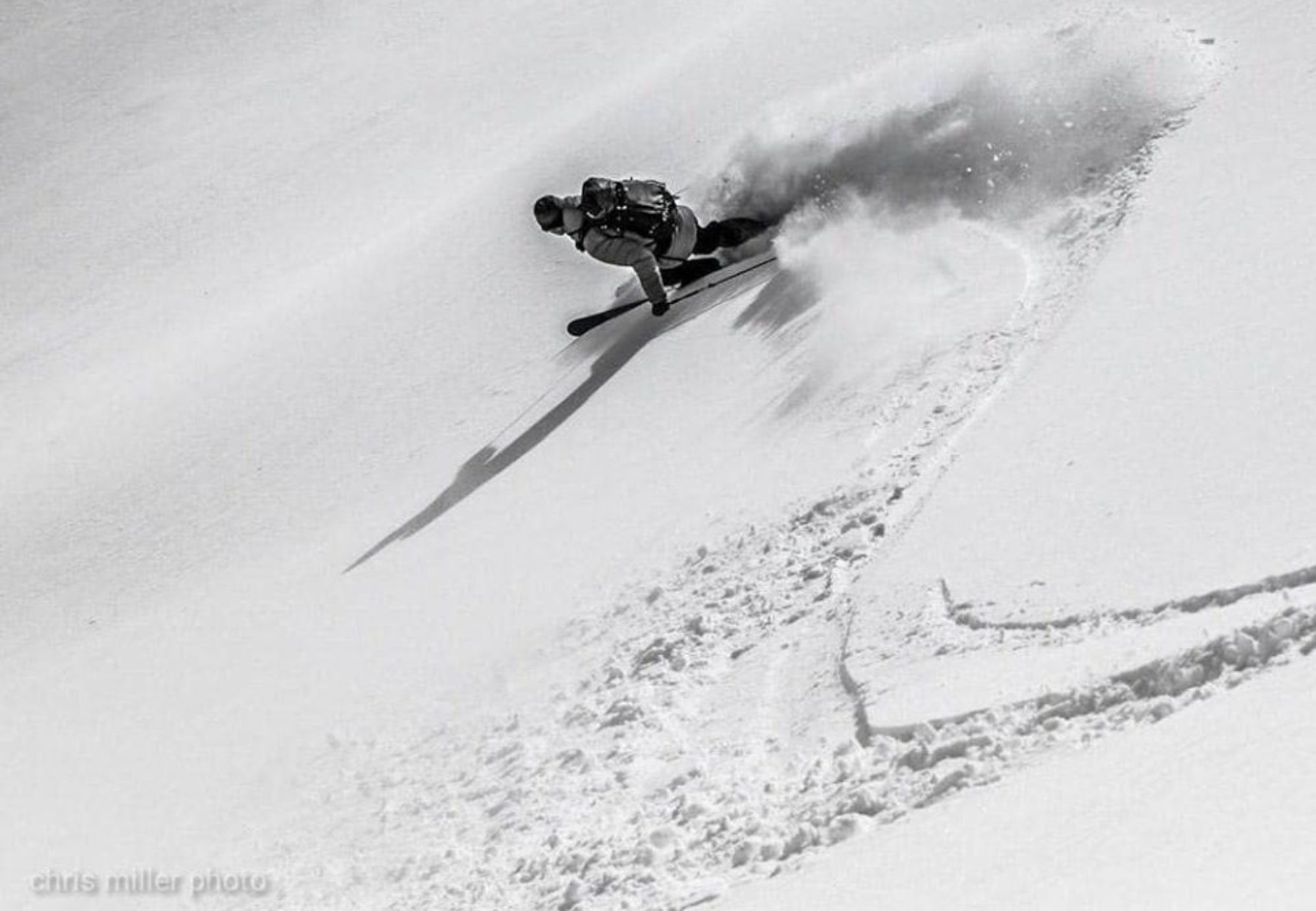All of us who have sat with our backs against a sun-warmed slab of mountain learn one thing after even a few minutes: Sunny rock is beautiful, but it’s also really hard and unforgiving. There is nothing more powerfully “real” than stone. Which is why I’m so surprised by the encroachment of the fanciful “Positive Thinkers” into the mountains. Self-help rah-rah cheering is great for some things, but in the mountains reality trumps unjustified self-esteem in short order.
If I’ve learned one thing over the years it’s this: the universe doesn’t give a shit about you, what you think, want, feel, or believe. You are, in the greater scheme of things, as completely irrelevant as a moth flying around a light at night. Rockfall happens whether you pray for it to or not. Some of the nicest, most decent people I know have taken rocks straight between the eyes and died in the mountains. Same with some real assholes. If there is a consciousness to the universe then it is clearly psychotic. A simpler explanation is that it’s up to us to do the right thing. Get it wrong and we die. To paraphrase the protagonist in Fight Club, until you know this basic fact of mountain life you are useless. You are not special and any amount of “magical” thinking is dangerous in reality-based activities.
 Will Gadd: “The universe doesn’t give a shit about you, what you think, want, feel, or believe.”
Will Gadd: “The universe doesn’t give a shit about you, what you think, want, feel, or believe.”This is why I hate books like “The Secret,” which claim that thinking happy positive thoughts about what you want will result in the conscious universe giving you stuff. Or that you can “manifest” outcomes by thinking about them. Anyone who talks about manifesting anything other than a good crap instantly earns the title of self-deluding nut case in my mind. When The Secret’s Law of Attraction meets the law of gravity, the law of gravity always kicks ass. Now, this sort of quasi-magical mental bullshit is cute in a three-year old, but I expect better from an adult. My kids talk about unicorns and I smile; it’s not going to kill them and an active imagination is a good thing. But even as I tell my kids there are no monsters under the bed, I try to teach them to look out for the real monsters, and to never rely on a magic unicorn or a prayer to save them. Real danger doesn’t respond to mysticism.
Thinking that somehow you are special and have the ear of the universe or some other mystical nonsense means you might not approach the mountains with the proper care. I view “spirituality” in mountain people the same as spirituality in suicide bombers; there are no virgins waiting in heaven for either, and I don’t want to be tied into a rope with anyone who thinks he or she is special. Crazy Horse believed he had magic that made him immune to bullets. He’s dead, just as are all the climbers who think, “When it’s your time it’s your time, nothing I can do about it,” and continued climbing up a south face on a warm day as the rockfall increased.
 Will Gadd: “Real danger doesn’t respond to mysticism.”
Will Gadd: “Real danger doesn’t respond to mysticism.”The Messner quote I like best goes along the lines of, “Mountains are neither fair nor unfair, they are just dangerous.” This is a critical piece of understanding that all of us who do mountain sports ought to have tattooed onto the inside of our eyeballs as a readily accessible reminder when we’re contemplating doing something like climbing under seracs. A proper response to real danger is to get the hell out of the way.
There is a well-known mental shortfall defined as “optimism bias,” meaning that people think they have more control over a situation than they do, and that negative events are more likely to happen to others. Too much bias toward optimism is probably useful in some areas in life, but not when life itself is on the line. Whenever I read avalanche reports I’m often struck by how often the victims knew the slope was suspect, but optimistically decided it would be OK. If someone survives then magical ideas like miracles and guardian angels are often invoked. Strangely, no one says, “God struck him down like a cockroach, too bad,” when someone dies. Magical thinking in any shape rests on denying reality. Ignorance kills often enough in the mountains without adding “willful” in front of it.
 Will Gadd: “A proper response to real danger is to get the hell out of the way.”
Will Gadd: “A proper response to real danger is to get the hell out of the way.”When I speak to groups about risk management I stress that the positive power of positive thinking is fine for boosting your ego before calling someone new for a date, but it’s not appropriate in situations that actually matter. What’s called for is some good solid reality-based critical thinking. Not, “We WILL make the summit!” but, “Hey, what’s the weather doing while we’re climbing? Kind of early for vertical cumulus cloud development isn’t it? Maybe this is all going to turn into a thunderstorm shortly, time to run away.” I call this situational analysis the “Positive Power of Negative Thinking.” Positive thinking fundamentally isn’t based on reality. If you’re competent then you’ll likely survive and do a good job. Just thinking, “I CAN DO IT!” likely means you’re not, and should stand down.
And this is why we need to both strip magical thinking out of the mountains in all its forms and celebrate the mountains for what they are: Extremely dangerous, stunning beautiful, deeply moving places that we love in our own ways, and that we find meaningful in a way nothing else offers. A place that often brings the best out in us precisely because it’s not a “woo woo” spiritual zone but a stunningly attractive reality where just staying alive is an accomplishment. Celebrate that beauty but watch for the hidden danger. Revel in the sun’s first rays after a frozen night out, but know that those rays are warming the face above the bivouac and that it’s time to get out of the sleeping bag and get moving.
If this all sounds depressing then you’re probably a lot like the majority of people I see wandering around in the mountains. All of us who climb, ski, paddle and fly over mountains are irrational optimists, and my realistic viewpoint often conflicts with that irrational optimism. But without understanding the game we won’t change our plans based on the reality of what’s happening around us. To be a successful climber is not to summit a peak or have fun doing so, but to survive the outing. To do that takes a hawk’s eye for detail about what is happening, not a prayer that it’ll be OK. It takes a keen appreciation of a mountain not just as beautiful but also as a hair-trigger trapdoor gallows we can hang ourselves on at any moment. And to understand that even with all this it’s still worth it, but that running away is often the best move when the opponent not only has all the cards but isn’t even aware you’re in the game.
The opinions in this piece are those of Will Gadd, a professional athlete.

